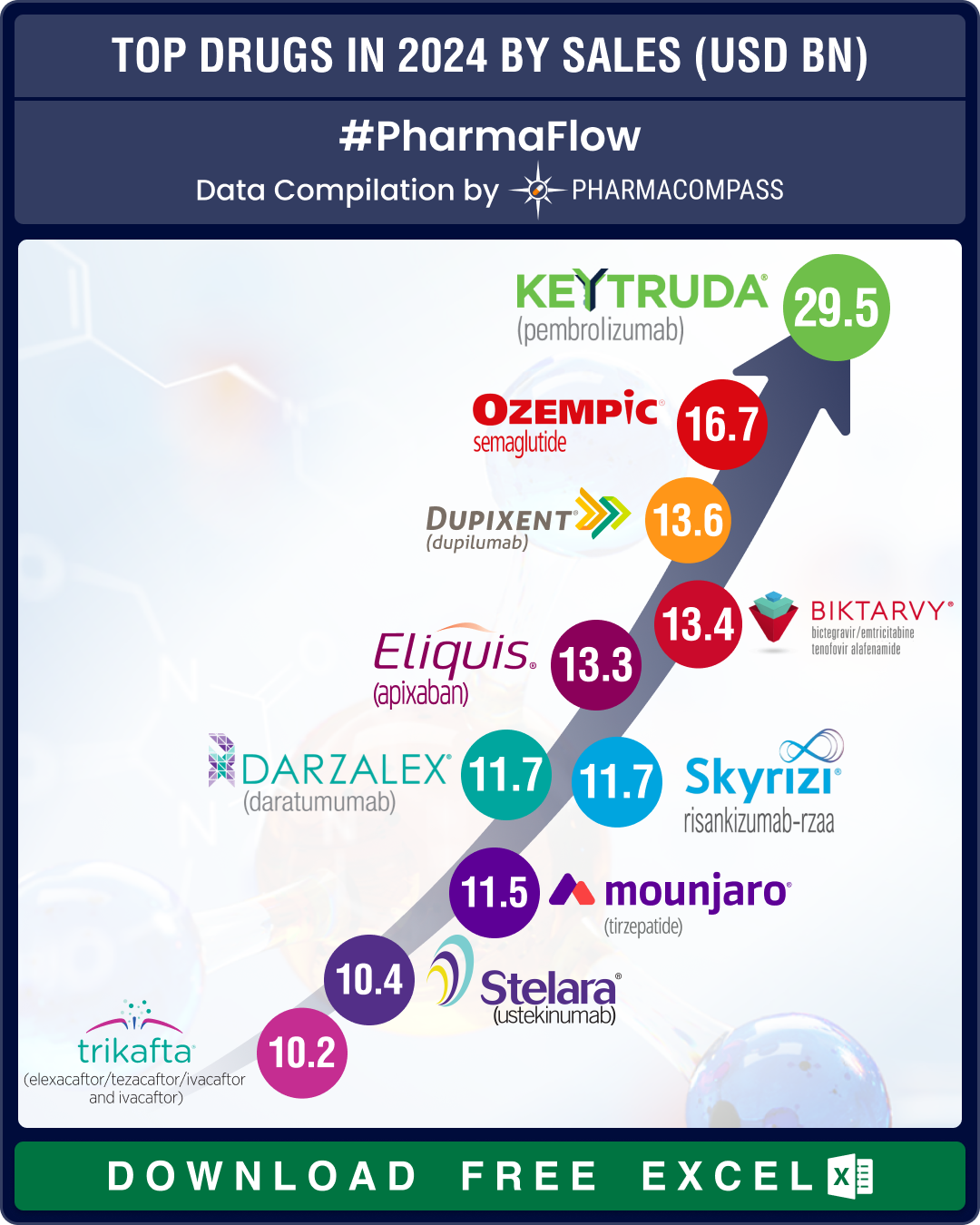
This week, Phispers brings you more bad news from India’s Biocon, as Health Canada’s caution notice cites data integrity violations highlighted by its regulatory partner. In the US, the generic industry failed to stall the passage of Maryland’s new price hike law. There is also an analysis of how Chinese firms are looking to buy out generic firms. Meanwhile, Takeda invested more in EU, and FDA launched its Adverse Event Reporting System.
Health Canada’s caution notice highlights data integrity violations at Biocon
The news doesn’t seem to be getting any better for India’s Biocon. Last week, Health Canada sent out a caution notice. The notice highlighted that one of Health Canada’s regulatory partners had informed them about data integrity violations and other GMP failings at the same Biocon site in Bengaluru that had been inspected by French health agency ANSM and the US Food and Drug Administration (FDA).
In July this year, PharmaCompass was the first to report on how Biocon’s biosimilar program had suffered a serious setback as an inspection by ANSM in March 2017 of its Bengaluru site had uncovered 35 deficiencies, out of which 11 had been deemed major.
However, there was no mention of data-integrity concerns. The inspection was conducted by ANSM on behalf of the European Medicines Agency (EMA) as a pre-approval inspection for the drug product manufacturing activities of the following (three) biosimilar products — Fulphila® (pegfilgrastim), Ogivri® (trastuzumab) and Semglee® (insulin glargine).
Post the non-compliance report issued by the European regulators, Biocon said in a stock exchange filing that it had withdrawn the dossier for two of these products. Since the approval of its trastuzumab and pegfilgrastim applications would require re-inspection of its drug product facility (for these products), the “request of withdrawal of the dossiers and re-submission is part of the EMA procedural requirements linked to this reinspection…,” Biocon had said in the statement.
The board of Biocon also approved the transfer of the biosimilar business of the company to Biocon Biologics India, a step-down subsidiary of the company, subject to the consent of its shareholders.
Biocon was also inspected by the FDA this year where discrepancies between the information submitted and the manufacturing process performed at Biocon were uncovered. Biocon had responded by saying that a Form 483 is a standard outcome of any audit and it had responded to all FDA observations.
Since then, things haven’t looked up for the Biocon/Mylan combine. After, they withdrew their applications for the trastuzumab and pegfilgrastim biosimilars from Europe, the FDA extended the target action date for their trastuzumab biosimilar by three months.
Unlike other sites, the ANSM inspection report did not specifically raise concerns over data integrity at Biocon. And that’s why, PharmaCompass is of the view that the USFDA might have shared these concerns with Health Canada.
Generic industry fails to stall passage of price hike law in Maryland
The generic drug industry in the US took a tough stance against Maryland's new pricing regulations and sought an injunction on passing of the law. However, the industry’s efforts failed to achieve the goal.
Generic companies said because they operate nationally, the law could disrupt their operations and impact commerce outside of Maryland. While the court ruled that some of the industry’s arguments have merit, it denied the industry’s request for a preliminary injunction. For now, Maryland’s price hike law has come into effect.
Unlike other approaches to regulate drug pricing throughout the country, Maryland’s law focuses specifically on the generic sector. With this new law, Maryland has become the first state in the United States to enact a law prohibiting “price gouging” by generic pharmaceutical manufacturers.
Takeda vests faith in post-Brexit EU,
expands capacity in Ireland
Japanese drugmaker Takeda is making another investment in its manufacturing facilities in the European Union. Takeda’s plans are being seen as a sign of faith in a post-Brexit EU. The company will invest up to US$ 118 million (€100 million) in a new manufacturing plant at its site in Clondalkin near Dublin, Ireland. This investment could add another 100 jobs to its operations in Ireland.
The outlay is for a 3,000 square-meter, two-story manufacturing plant next to an existing facility at the Grange Castle business park.
A few months back, Takeda had begun construction of a US$ 42.8 million (€40 million) facility at the Grange Castle site to manufacture its newly approved oral multiple myeloma drug Ninlaro.
Other companies have been reluctant to invest in Europe. Leif Johansson, chairman of AstraZeneca, recently said the company will have to pull some manufacturing and research operations out of the UK “if there is not a viable deal for its exit from the EU”.
“If something doesn’t happen to take away the current uncertainty it will become a big and important matter for us. Moving manufacturing takes several years,” Johansson said in an interview.
FDA launches Adverse Event Reporting System and new search
tool
This week, the US FDA launched its Adverse Event Reporting System (FAERS) — a database that contains adverse event (AE) reports, medication error reports and product quality complaints resulting in adverse events that are submitted to the agency.
The FDA also launched a new dashboard to facilitate access to reports of adverse drug reactions.
According to The Centre for Biosimilars, FAERS contains 14 million AE reports submitted by healthcare providers, consumers, manufacturers of drugs and biologics, and other stakeholders. “The database is designed to improve transparency and accessibility to AE data by allowing users to search it more easily,” it says.
The database is used as a surveillance tool to help the FDA look for new safety concerns that might be related to a marketed product. It is also used to evaluate a manufacturer’s compliance with reporting regulations and responding to outside requests for information.
“The FDA is committed to fully informing patients and providers of adverse events reported with medical products, and this enhanced portal now provides patients, doctors, and others with easier access to the data they are interested in,” Scott Gottlieb, FDA Commissioner, said.
Chinese money chasing generic firms; Pfizer maybe interested in buying BMS
Chinese money is out to purchase one generic firm after another. Weeks after Chinese pharmaceutical giant Fosun resurrected its deal to acquire India’s Gland Pharma for US$ 1 billion by scaling down the stake it desires to purchase, it is now looking to acquire the manufacturing facilities of another Indian pharma company.
It’s new target is Symbiotec Pharma, an active pharmaceutical ingredient (API) maker specializing in steroid-hormone products. This mid-size drugmaker complies with quality standards of the US FDA.
Private equity firm Actis holds a 70 percent stake in Symbiotec Pharma, which has been an acquisition target for other drug makers too. Investment bank Rothschild has been mandated to initiate an auction process.
But the Chinese money is looking beyond India. According to a Bloomberg report, Shanghai Pharmaceuticals Holding is focusing on a sale of Alvogen’s US business. Alvogen is a generic pharma company, and owners of its US operations (such as private equity owner CVC Capital Partners) are exploring various options. Alvogen’s US operations could be valued at US$ 4 billion.
Shanghai Pharma is also bidding for a stake in Arbor Pharmaceuticals as well as Cardinal Health’s Chinese distribution business.
Pfizer and BMS: While rumors about Pfizer wanting to buy Bristol-Myers Squibb have been doing the rounds from some months now, a FiercePharma report published this week quoted analysts as saying they believe the American pharma biggie maybe interested in buying BMS. However, Pfizer may postpone pursuing such a big deal until it has “more clarity on corporate tax reform efforts.”
Pfizer may also be waiting for “further visibility” on BMS’ Opdivo-Yervoy trial in first-line lung cancer patients, the report says.
US health secy resigns over use of private planes; FDA’s Gottlieb travels commercial
In the US, the Health and Human Services (HHS) Secretary Tom Price resigned last week in the face of multiple investigations into his use of a private charter and military jets to travel around the country.
This is being seen as a gross misuse of taxpayers’ money, amounting to nearly US$ 1 million. These trips were between cities where inexpensive commercial flights were also available.
Price apologized for his expensive habit, and vowed to cover the cost. In his resignation letter, Price said he regrets the “recent events have created a distraction,” from his work at HHS.
According to Endpoints, the FDA said its commissioner Scott Gottlieb “has only traveled via commercial airlines for government travel.” The report adds: “Gottlieb, by the way, does enjoy the occasional treat while traveling”.
In fact, Price is not the only one. The US Treasury Secretary Steven Mnuchin has made requests for special travel arrangements using government craft.
Meanwhile, the White House has placed new requirements on officials’ air travel plans. Federal agencies were told “all travel on government-owned, rented, leased, or chartered aircraft, except space-available travel and travel to meet mission requirements ... shall require prior approval from the White House Chief of Staff."
The PharmaCompass Newsletter – Sign Up, Stay Ahead
Feedback, help us to improve. Click here
Image Credit : Chinese Money by Steve Parker is licensed under CC BY 2.0
“ The article is based on the information available in public and which the author believes to be true. The author is not disseminating any information, which the author believes or knows, is confidential or in conflict with the privacy of any person. The views expressed or information supplied through this article is mere opinion and observation of the author. The author does not intend to defame, insult or, cause loss or damage to anyone, in any manner, through this article.”






